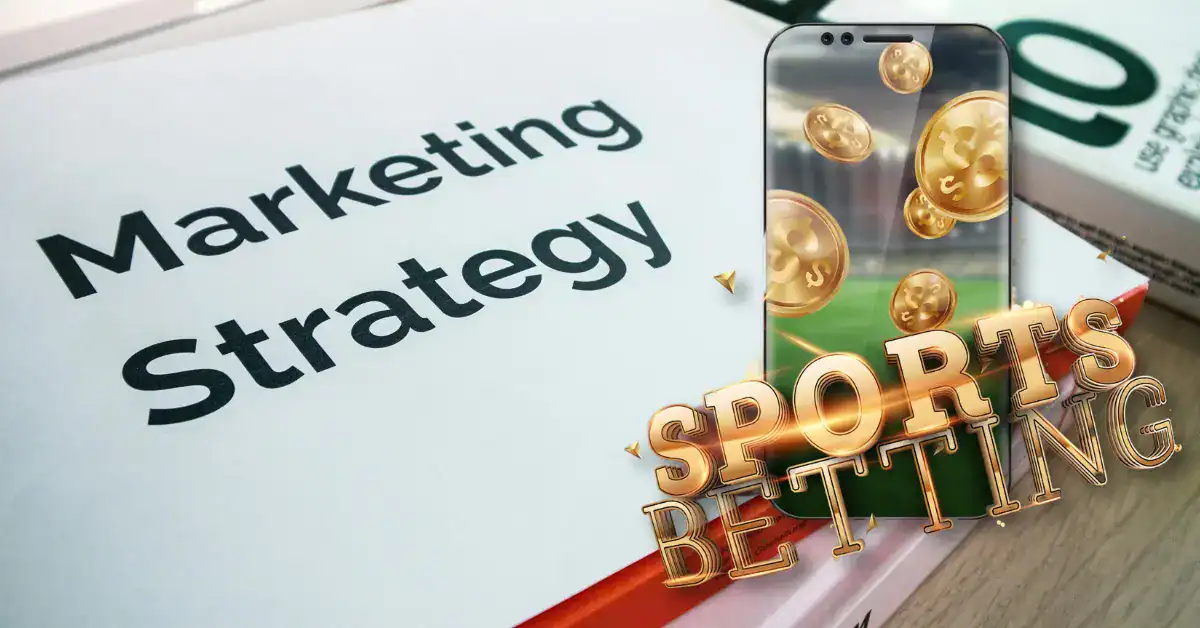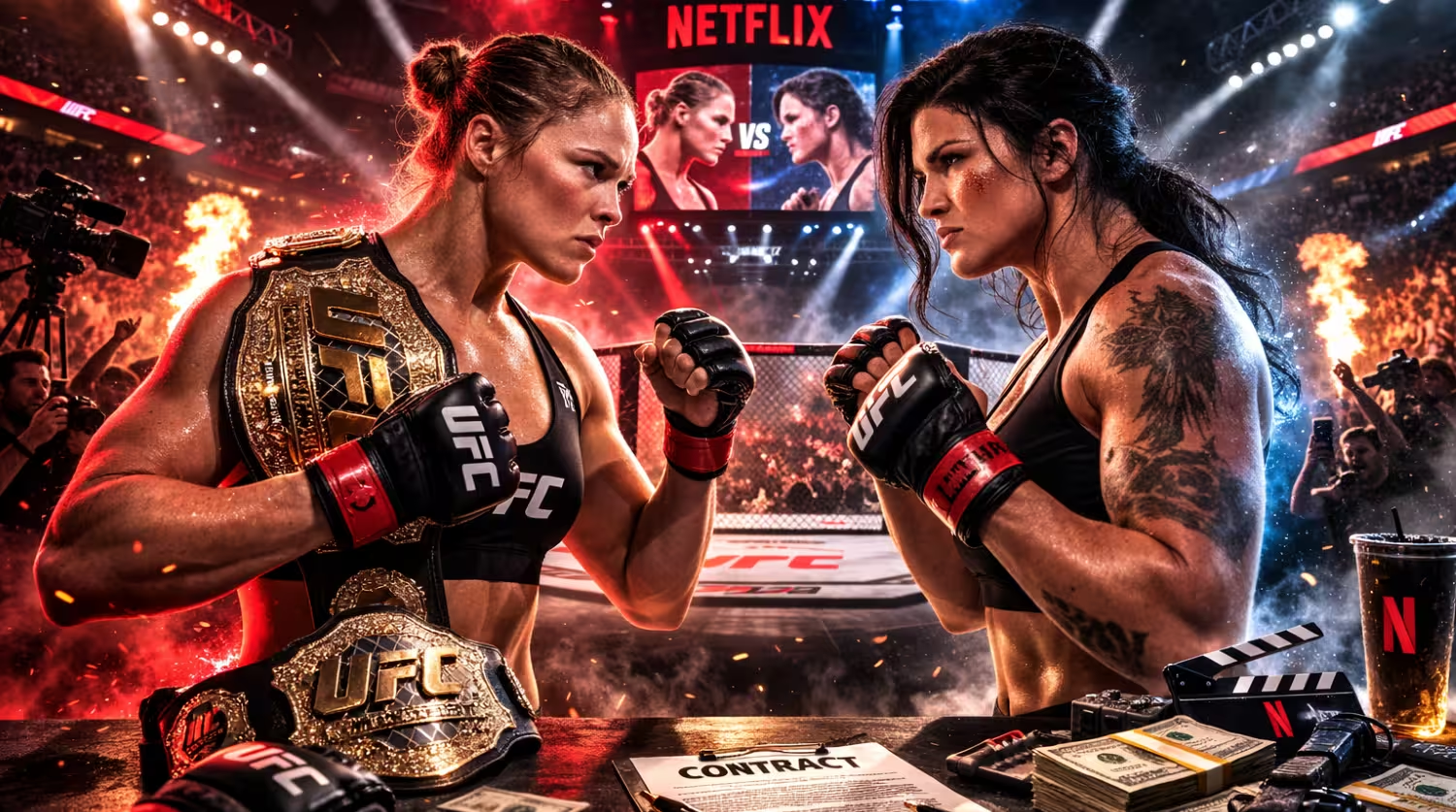Are Sportsbooks Targeting Addicts? A Look at Marketing Tactics

Sportsbooks are having a field day. Betting is booming, and it’s everywhere you look—even if you aren’t looking for it.
Turn on the TV? Commercials from BetMGM. Watch TikTok? Promoted ads from DraftKings. Instagram and Facebook? FanDuel. You get the general idea. If you have zero interest in sports betting, you are still exposed to tons of marketing from these entities.
There are everyday ads, special game day ads, and targeted push alerts for users. The platforms are dueling it out in the media in a fierce competition for your attention and your money. And as the industry gets more sophisticated? The marketing tactics follow suit. Which poses a tough but legit question: Do some of these ads target the most vulnerable players? The ones who are having a hard time stopping?
That’s what we want to know! Keep reading to discover what we found out about how sportsbooks use data, design, and psychology to keep people betting, and if that the line between marketing and manipulation is bordering on nonexistent.
The Rise of Personalized Sports Betting Ads
The marketing machine has gone from mass promotion to one-on-one persuasion. Ads used to be limited to TV and stadium banners, but sportsbook ads got a digital glow-up, and they’re following users from social media platforms to inboxes. How do sportsbooks use our data, habits, and behavioral triggers to time their ads perfectly, and, in some cases, problematically? Let’s get into it!
From TV Spots to TikTok — How Sportsbooks Found You
Ten years ago, sportsbook marketing meant just TV ads and stadium sponsorships. Today? It’s hyper-personalized and follows you everywhere you go. In the early days of legal U.S. sports betting (post-2018), companies like DraftKings and FanDuel blanketed the airwaves and plastered their logos in sports arenas. Sports broadcasts began to feature odds updates, and podcasts got peppered with betting ads. But traditional ads were just the beginning.
Modern sportsbooks have shifted gears to digital and data-driven tactics. They track your clicks and bets in granular detail and then tailor promos to your behavior. Social media and mobile apps are the new frontier; sports betting companies have partnered with influencers and used platforms like TikTok to reach new audiences, and a major bookmaker ran TikTok ads targeting young women to broaden its mostly male user base.

Push notifications on your phone prod you with “special offers” at the right (or wrong) moments. A dormant customer could get a text for a “limited-time” free bet bundle, and that’s dangerous if you’ve been trying to cut down or stop. And if you do stop, you’re likely to get a “we miss you” reactivation bonus, as the companies openly talk about “win-back” campaigns to lure back lapsed users.
How Do They Know?
Behavioral tracking and AI have enabled platforms to analyze everything. Like your favorite teams, how much you wager, when you bet, and which bets you almost won. If you always bet on the Warriors, don’t be shocked when your app serves up a boosted odds promo on the next Warriors game.
A betting tech CEO explained how their AI engine personalizes offers based on each user’s habits, suggesting “Because you bet on this, you might also like this” bets to keep users playing. 72% of sportsbook operators surveyed said a “personalized player experience” is the biggest factor in keeping customers betting.
The targeted tactics represent a huge evolution from the one-size billboard ad. Sportsbook marketing has become a 24/7, personalized dialogue, trailing you from TV to X to the phone you’re holding. The convenience is undeniable, but so is the concern that this kind of precision is being used to exploit our weaknesses.
Behavioral Psychology Behind the Promotions
You’ve no doubt seen a “risk-free bet” or a bonus pop up at just the right time, and it’s no coincidence. Read on to find out how sportsbooks use psychology, aka dopamine triggers, loss-chasing incentives, and near-miss rewards, to make betting addictive by design.
Free Bets Aren’t Really Free
Just like a physical casino, it’s not an accident that sportsbooks and gambling sites are addictive. The platforms are all engineered with the same psychology that casinos have used forever; only now it’s been supercharged for mobile. What are some of the powerful hooks that are built into betting promos and apps? The following:
Making a bet (and hoping for a win) triggers a surge of dopamine, which is our brain’s pleasure chemical. Sportsbook apps capitalize on this by offering users constant mini-rewards. Every animation for a win, or a near-win, delivers a quick neurological “high” that keeps you returning. The apps are built to make every second of a game feel high-stakes, “Delivering a hit of dopamine each time you bet, win, or almost win,” as one psychologist said.
The opposite of the highs are the lows, and betting promos are ready to catch you when you hit the floor. Sportsbooks frequently dangle “second chance” or “no-sweat” bets that refund your stake (as site credit) after a loss, conditioning you to keep betting. This feeds into the classic gambling fallacy of chasing losses. Your tolerance builds, and the small bets don’t feel like they used to, so bettors will up the ante or try parlays to recapture that rush. It’s a dangerous reinforcement cycle: the more you play (even if you’re losing), the more the app nudges you to play again.
In gambling psychology, “near misses” (almost winning) can be as motivating as the wins. Sports betting is full of near misses, like losing a parlay by one leg or a last-second bad beat on a point spread. Bettors who lose by a smidge usually feel encouraged rather than discouraged, which sportsbooks implicitly exploit. Promotions like parlay insurance (“money back if you lose one leg”) highlight your near-miss, and that tempts you to try again. The apps know that almost hitting a big win will light up your brain’s reward pathways and spur more bets.
Sportsbooks also use the fear of missing out to prompt impulsive bets. Limited-time odds boosts, one-day bonus tokens, and countdown timers on promotions create a false sense of urgency. A push notification will announce “Today only: Bet $50, get $50 free!,” and that will push you to feel like you have to act now or regret it later. The tactics leverage our aversion to missing a deal. Experts say that push alerts stressing urgency and scarcity are a big red flag, especially if they’re sent to someone who is trying to stay away. The offer of “10 free bets” expiring at midnight can be the siren song that pulls a vulnerable user right back in.
In addition to the promos, the app UX is deliberately built to keep you hooked. Depositing and betting are one-click easy, and self-exclusion or setting limits are sometimes buried in the menus. Bright colors and casino-style sounds celebrate wins, and your losses are less visibly tracked—there is no running total of the money you’ve lost. The apps also bombard you with continuous prompts; as soon as you place one bet, a pop-up suggests another.
And sportsbook accounts are notorious for being hard to close—you have to jump through a ton of hoops and call the platform to confirm. All of the above dark design patterns make it questionable if it’s a fun experience or a manipulative one, as they make sure that users stay longer, bet more, and have a harder time walking away.
Who’s Most at Risk?
Then there are the bettors who get the “VIP” treatment, but that’s not always a good thing. Customers are treated differently based on how much they spend, and sportsbooks use that to zero in on them with the most aggressive marketing tactics.
Data-Driven or Dangerously Predatory?
The biggest spenders (aka whales) and most frequent gamblers, who are those who are in the highest risk category, always get the most aggressive attention. The high-value customers are courted with VIP perks, personal managers, and constant offers.
A recent UK court case revealed just how predatory this can get. A recovering gambling addict testified that a betting company bombarded him with over 1,300 promotional emails in two years. He had never meaningfully consented to this kind of marketing and was spending all of his wages on bets, which is an obvious sign of problem gambling.
Instead of flagging him as high-risk, the company labeled him a “high-value” VIP. Internal documents showed that when he did finally stop gambling, they immediately started to strategize how to “win back” what they saw as a “lucrative customer.” The judge in the case condemned the firm’s use of personal data and ruled the targeting was unlawful and “parasitic” given the man’s impaired ability to consent due to addiction. This is a stark example of data-driven marketing overriding basic ethics.

And it’s by no means an isolated incident. Watchdogs have long noted that VIP and loyalty programs ensnare problem gamblers. A leaked industry report in Britain found that a tiny fraction of customers (usually VIPs) generated a huge share of deposits—at one betting firm, only 2% of users accounted for 83% of all deposits. The VIPs were disproportionately likely to be addicts or on the verge. The companies lured them in with free bets, cashback on losses, and event tickets, which were basically rewards for being a big loser.
It’s not surprising that U.K. regulators cited VIP schemes as a factor in 7 out of 10 regulatory penalties for failing to protect problem gamblers. The UK Gambling Commission eventually stepped in with strict new rules to curb “irresponsible VIP practices,” warning that companies have to do thorough checks before showering perks on someone who might be gambling beyond their means.
In the U.S., regulation hasn’t yet caught up to such tactics, and some operators are really pushing the envelope. Internal job postings have hinted at priorities that put profit over player safety.
FanDuel, owned by Flutter Entertainment, advertised VIP account manager roles that were expected to “increase player activity and drive revenue.” Their job description is to get the top customers to bet more, which is way different than Flutter’s practice in the U.K., where VIP managers aren’t incentivized by customer spending, specifically to avoid problematic exploitation. FYI: FanDuel removed that specific phrasing after it drew scrutiny in 2024.
And although British online casinos have limits like a £10 cap per slot spin to slow down high rollers, the same company’s U.S. platforms allow far higher bets in the absence of such rules. All of this suggests that, in newer markets like the U.S., data-driven targeting of big spenders slides into dangerously predatory territory before regulators can pump the brakes.
Who else is at risk? Marketing algorithms also single out people who exhibit “chase” behavior or other red-flag patterns. Those who regularly deposit after losses or play at 3 am will get tagged for special offers, when in reality they’re showing signs of distress. Insiders and experts worry that with advanced AI, sportsbooks could identify and exploit susceptible gamblers with chilling precision.
Dr. Timothy Fong of UCLA’s Gambling Studies Program said, “AI can create predatory scenarios, where people who are already vulnerable because of mental health issues or a gambling addiction could be manipulated or targeted without their knowledge.” In other words, the same data tools that could be used to intervene and help are being used to maximize revenue from those who are least able to resist.
Ultimately, problem gamblers and those who are teetering on the edge are at the highest risk of being targeted by intense marketing. They bet more, so they’re valued more, which is a bleak reality.
An addiction advocate asked, “What percentage of gambling profits come from those with a disorder?” The answer? Several analyses suggest that it’s alarmingly high, anywhere from 15% on the low end to possibly one-third or more of revenues coming from people with gambling problems. This creates a perverse incentive: the house needs its most addicted players to keep playing. And that makes the line between “VIP treatment” and predation very, very thin.
Loopholes in Self-Exclusion and Compliance
If you’re trying to slow down or quit? Welp, the ads might not let you. Self-exclusion is supposed to give gamblers a way out, but there are big holes in the system that allow marketing messages to get through. Sportsbooks (and affiliates) still reach self-banned users, and the fragmented oversight just isn’t cutting it.
When Self-Bans Fail and Ads Keep Coming
There are people who know that they have a gambling problem, and self-exclusion programs are supposed to be a lifeline, and in theory, they are! . You can ban yourself from betting sites and casinos, and the companies have to stop taking your bets and stop marketing to you.
Unfortunately, this is full of loopholes, and addicted gamblers are pushed by the marketing that they tried to escape.
A glaring example happened in the UK during what was ironically the “Safer Gambling Week.” Flutter’s Sky Bet brand mistakenly sent out a blast email with a bonus offer (“Take a peek at what your mystery bonus is… opt in, spend £5 and claim your 100 free spins”) to thousands of people, including recovering addicts who had self-excluded from all gambling.
The people had taken the proactive step to ban themselves via the GamStop program, yet here they were, getting a tempting promo right in their inbox. The fallout was quick: regulators launched a probe, Sky Bet apologized, and campaigners were outraged.
A self-excluded man said, “They shouldn’t be targeting anyone, let alone people who’ve told them they have a problem… I tried to access my account [after that email].” And a former party leader in Parliament lambasted it as “Outrageous…self-regulation doesn’t work…People trying to stop are being targeted, like throwing a free shot of tequila at an alcoholic.”
That incident exposed a loophole: Human or system error can accidentally (or carelessly) keep problem gamblers on marketing lists. Regulators in jurisdictions explicitly ban contacting self-excluded patrons, as it’s a basic responsible gambling requirement, but we keep seeing failures.
In the U.S., Caesars Entertainment was fined for sending promo emails to 231 people on the self-exclusion list, soliciting their business. PointsBet sportsbook was also fined after it sent over 500 marketing texts/emails to self-excluded individuals due to a “technical glitch.” Every single one of those contacts is a potential trigger for relapse. The people who are trying hardest to quit are being dangled bait, and even if it’s a mistake, it’s negligent.
Then there’s the fragmented nature of self-exclusion databases. Self-exclusion is done state-by-state or operator-by-operator. If you ban yourself from one app or in one state, another company might not know about it. A problem gambler could self-exclude from all the apps in New Jersey, but then get sign-up offers when they cross into Pennsylvania or when a new sportsbook launches that isn’t part of a unified program.
Unlike the UK’s GamStop, which has one national database that operators have to check, the U.S. lacks a universal system, though the major firms have begun discussing sharing exclusion data. Until recently, major U.S. operators weren’t sharing lists of problem gamblers with each other at all, meaning that someone who is barred on FanDuel could just hop on DraftKings unnoticed.
Even within a single platform, slick marketing finds its way around self-exclusion. Affiliate marketing and third-party ads are a gray area. You can unsubscribe from Operator so-and-so’s emails, but if an affiliate website you gave your email to is promoting Operator so-and-so, you still get indirectly targeted. Worse, investigative reports found gambling sites covertly used tools like Meta’s tracking pixel to tag visitors and then bombard them with betting ads on Facebook, all without clear consent.
So even if you don’t sign up or you actively opt out, just visiting a sportsbook site can cause your data to be shared with ad networks that will keep pitching you bets as you browse the web. U.K. lawmakers called out these secret data-sharing practices as “out of control,” noting how they undermine attempts by vulnerable individuals to disconnect.
Finally, accounts are really hard to truly “delete.” Users have complained that after self-excluding, they keep getting generic sports updates or game result notifications from apps. The content isn’t overtly a promo, but it could still pull them back in.
The Industry’s Defense
The sportsbooks all say that they’re doing their part, but are they really?
There are responsible gambling tools and public pledges, as the companies insist that they’re not preying on addicts. Here’s what they claim, what they offer, and where those efforts look and sound more like PR than protection for players.
What the Sportsbooks Have to Say in Response
Sportsbook operators insist that they are deeply committed to ethical marketing and player safety. If you listen to the companies themselves, you’ll hear a lot about “responsible gambling” tools and initiatives. So, what do they claim, and how does it measure up?
First of all, the major platforms all highlight the suite of safety features that are built into their apps: deposit limits, loss limits, wager caps, cool-off periods, self-exclusion options, etc.
Players are able to set up daily or monthly deposit maximums, or get a pop-up after a certain number of hours of play that tells them to take a break. Sportsbooks also run “reality check” features that remind you of the time or money spent. All this is usually accessible under account settings.
The caveat? Very few people actually use them. Research from New Jersey found that only about 1% to 5% of young bettors are using the voluntary limit-setting tools, and that’s a teeny fraction. Yes, the tools exist, but they usually serve as talking points rather than solid safeguards for the masses.
The industry also touts its responsible marketing codes. In the U.S., the American Gaming Association (AGA) has a marketing code of conduct that members say they follow, like no advertising to minors, clear “21+” and problem-gambling warnings on ads, etc.
All sportsbook commercials or billboards now have the tagline: “Gambling problem? Call 1-800-GAMBLER.” And in fine print, they list eligibility and terms. The companies argue that the disclaimers and the promotion of helplines demonstrate their commitment to mitigating harm.
The critics? They think that a tiny footer or a rushed voice-over in an ad is pretty much worthless for problem gamblers. How many addicted gamblers will call that number when an ad is hyping up a “free bet” offer?
In public statements, executives stress that they don’t want problem gamblers. They claim it’s bad for business in the long run if customers ruin their lives (and finances). In 2024, seven of the largest U.S. sportsbook companies formed a new trade group, the Responsible Online Gaming Association (ROGA), and pledged over $20 million for research, education, and a “best practices” charter for safer gambling.
The big firms said for the first time that they’ll collaborate to share data on self-excluded and at-risk players, which could help prevent a banned user from just migrating to another platform. It’s a promising step on paper; the group’s mission statement talks about “driving a race to the top” on safety standards and making responsible gambling tools more accessible.
Sportsbook operators also point to the resources they devote to compliance teams and AI monitoring. Most have algorithms that supposedly flag unusual betting patterns that might indicate a problem (like very rapid bets, drastic increases in deposits, etc.). Some have started using predictive models to reach out to players who show signs of trouble, which entails sending them responsible gambling messages or freezing accounts pending review. In regulated markets like the U.K., this is becoming a requirement (affordability checks once losses pass a certain threshold). In the U.S., it’s voluntary so far, but companies say, “We monitor and intervene if and when needed.”
Despite all of their defenses, the effectiveness and sincerity of industry efforts are debated. Critics argue that for all the talk, the proof is sorely lacking. The safety nets have big holes, as one problem gambler was allowed to blow through all his money without intervention until a court intervened.
And while operators do encourage “responsible play,” they simultaneously inundate users with promos. Professor Heather Wardle, a gambling behavior researcher, said, “It’s convenient for the industry to frame it as ‘all about individual responsibility,’ as it shifts focus off the companies’ aggressive tactics.” Self-imposed limits don’t hurt profits, but stopping targeted ads to a high roller does.
Then there are some in the gambling industry who acknowledge the balance. An AGA spokesperson explained that legal sportsbooks feel pressure to make betting as engaging and frictionless as possible because they’re competing with rivals and black-market sites. The argument goes like this: if we don’t offer big bonuses and fun features, the customer will go somewhere else to get them. And the truth is that marketing is an arms race, particularly in the U.S., where companies spent over a billion dollars on advertising in 2024 to fight for market share. None of them wants to dial back personalized promos and lose ground unilaterally.
So the industry’s answer, broadly, is: “Yes, we market heavily, but we play within the rules and provide tools for anyone who wants to stay in control.” They highlight their responsible gaming messaging, partnerships with addiction research groups, and the fact that many people can and do gamble recreationally without any issues. It’s a balance of “promote the fun, but warn about the risks.”
Is it enough? Most experts and regulators are not anywhere near convinced. They see a huge disconnect between the glossy responsible gambling brochures and the reality of apps that are engineered to maximize play.
Expert Opinions and Red Flags
For years, experts and advocates have been sounding the alarm about gambling addiction and the harm it causes. Part of this is the marketing practices that look way more exploitative than ethical.

What the Researchers and Advocates Say
Addiction experts, consumer advocates, and lawmakers have been shouting from the rooftops about the danger of sports betting marketing. To them, a lot of the tactics are not harmless marketing; they’re manipulative and harmful practices. The following are some of the perspectives and concerns from those who are on the front lines of gambling addiction.
- “They’re using our psychology against us.” Psychologists like Jamie Torrance and Heather Wardle have observed that betting companies are leveraging every trick in the behavioral science book to keep people hooked. “They have all of this knowledge about how the human mind works…and use that knowledge for profits,” Torrance says. Features like rapid-fire in-play bets, constant notifications, and near-miss teasers are all explicitly designed to undermine a person’s self-control. This has experts worried because it means that someone who is trying to gamble moderately is up against a super sophisticated opponent—the house’s marketing machine.
- At-risk individuals are exposed to constant triggers. Researchers point out that heavy marketing can hit the hardest on those who can least afford it. Dr. Rachel Volberg, an epidemiologist who studies gambling, says that people in recovery from gambling addiction are the most susceptible to relapse when they’re bombarded by ads. A U.S. editorial described how pervasive betting ads on TV, radio, podcasts, and on the names of sports stadiums are, as it’s comparable to “Putting a whiskey under the nose of a dry alcoholic” for someone who is trying to stop gambling. This saturation of marketing makes addiction counselors nervous, as it normalizes gambling as ubiquitous and makes abstinence or moderation exponentially harder.
- There’s empirical evidence that some marketing selectively hits those with indicators of problem gambling. Lawsuits filed in the U.S. have accused sportsbooks of “exploiting gambling-naive individuals” and young men with deceptive promos. In the UK, the fact that VIP programs scooped up so many addicts (as found in that secret report) shows a pattern: the biggest losers were groomed with perks to keep them betting, despite obvious harm. Watchdogs call this out as predatory. The UK Gambling Commission tightened rules around inducements and banned certain high-enticement features; they’ve seen how those features correlate with people gambling beyond their means. Iain Duncan Smith, a UK MP advocating gambling reform, said, “The industry’s marketing practices are out of control. Codes of practice are repeatedly shown to be inadequate.”
- The marketing of so-called “risk-free” bets or “free” credits is another red flag for addiction specialists, who warn that these offers are far from free. They come with strings attached (like needing to wager the credit multiple times) and deceive people into thinking they can’t lose, but people end up losing their own money chasing the bonus. U.S. class-action lawsuits against DraftKings and others allege that such promos are inherently misleading and predatory, creating a false sense of security that encourages higher risk-taking. Regulators in some states have started banning the term “risk-free” in advertising l, and the general consensus among advocates is that ethical marketing wouldn’t need to dangle deceptive “free money” hooks.
- Experts also highlight that laws and oversight haven’t kept up with the rapid change to personalized, digital betting. Affordability checks, which verify that a gambler can afford their losses, are mandated in some form in the UK, but are nonexistent in the U.S. So a U.S. sportsbook can watch someone drain their bank account without any obligation to step in or even slow down the marketing coming their way. The use of AI for personalization is another grey area: there are no specific rules about how gambling companies can use personal data in many jurisdictions, beyond general data protection laws. When a company can algorithmically pinpoint who is likely an addict, should it not be required to limit or stop promotions to that person? Advocates say yes; the duty of care has to match the sophistication of the tools being used.
The expert consensus is that most sportsbook marketing tactics cross an ethical line, especially regarding vulnerable users. Marketing is expected in any business, but the combo of a highly addictive product, sophisticated targeting, and inadequate oversight makes it a perfect storm for exploitation. Researchers and advocates are urging that we treat gambling advertising with the same skepticism and scrutiny as tobacco advertising, because the cost of doing nothing is measured in ruined finances, fractured families, and lives that are being put at risk.
Conclusion: Good Marketing or Manipulation Tactics?
The surge in sports betting has come with an onslaught of innovative marketing, and with that, a conundrum on what is acceptable advertising and what could be considered dangerous manipulation.
Look below for a quick recap on what we covered:
- The sportsbook marketing arms race is happening in front of our eyes; companies deploy every trick in the book to bring in new biz. But those same tactics venture into predatory behavior, especially when it’s aimed at susceptible players.
- Patterns suggest that problem gamblers are the ones being targeted, not protected. High-risk bettors, aka big losers, self-excluded people, and young, inexperienced men, all tend to get more promos, when ethically they should get fewer or none. The contradiction is at the center of the concern.
- Regulation hasn’t caught up: Fast-paced innovation in data-driven marketing has outstripped the slow march of regulations. Loopholes mean that harmful practices make it through, and enforcement only comes only after the damage is already done.
- Pressure is mounting for change: From class-action lawsuits to government inquiries, there’s a growing push for transparency, stronger consumer protections, and accountable marketing. Measures like mandatory data sharing on problem gamblers, limits on bonus offers, and clearer, non-misleading advertising are all being called for.
Is sportsbook marketing “good fun” or a form of exploitation? That depends on where we draw the line. Right now, the balance seems to lean in favor of aggressive growth over caution. As bettors and as a society, recognizing the tactics is a must. The hope is that with greater awareness, better regulation, and a demand for accountability, sports betting can be enjoyed as entertainment without preying on those who are struggling to stop.
Helpful Resource Links
If you think that you or someone you care about is being negatively impacted by gambling, there is help! Look below for a list of resources:
- National Council on Problem Gambling (NCPG): Has a 24/7 confidential helpline (1-800-GAMBLER) and resources for people and families in the U.S.
- State-Level Problem Gambling Programs: Most U.S. states have their own helplines and counseling services (you can find links via NCPG’s website or your state’s gaming commission).
- GamCare (UK): Free support, live chat, and the National Gambling Helpline (0808 8020 133) for anyone who has been affected by gambling in the UK.
- Gamblers Anonymous: An international support fellowship with local meetings and forums for those who are looking to quit gambling and find community in recovery.
For more info, you can read our comprehensive guide on how gambling addiction starts: the early warning signs!

Alyssa contributes sportsbook/online casino reviews, but she also stays on top of any industry news, precisely that of the sports betting market. She’s been an avid sports bettor for many years and has experienced success in growing her bankroll by striking when the iron was hot. In particular, she loves betting on football and basketball at the professional and college levels.







